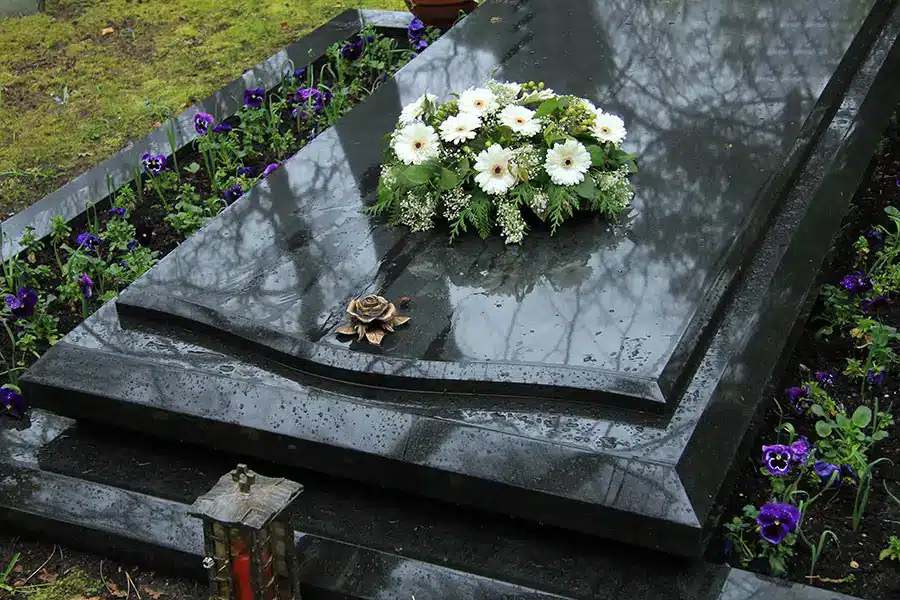
Anesthesia Deaths:
A Guide to Colorado Wrongful Death Lawsuits
Understand your rights if you lost a loved one due to a medical mistake from anesthesia
Anesthesia is a critical component of modern surgery, enabling procedures to be performed without pain for the patient. However, despite its widespread use and significant advancements in safety, the risk of complications, including death, remains a concern that cannot be entirely eliminated.
This article delves into the various aspects of anesthesia-related deaths, exploring how common these tragic outcomes are, the main causes behind them, and who may be held legally accountable when they occur. It also outlines the evidence needed to prove wrongful death due to an anesthesia error, who is eligible to sue for such a death in Colorado, and the crucial timelines for filing a wrongful death claim in the state.
How common are deaths during anesthesia?
According to the Cleveland Clinic, deaths associated with anesthesia occurred about once in every 10,000 to 20,000 patients during the 1960s and 1970s. Today, such incidents have become relatively rare, with the rate improving to approximately 1 in every 200,000 patients.
What is the main cause of death in anesthesia?
The main causes of death related to anesthesia have evolved significantly over time due to advancements in medical technology, anesthesia drugs, monitoring equipment and safety protocols.
Historically, factors such as overdose of anesthetics, lack of oxygen (hypoxia), and adverse reactions to anesthesia drugs were among the leading causes of anesthesia-related deaths. However, in contemporary medical practice, anesthesia is much safer, and the incidence of anesthesia-related deaths is very low.
Today, the main causes of anesthesia-related deaths, when they do occur, include the following:
- Equipment malfunction or human error. Though increasingly rare due to stringent safety standards, equipment use or judgment errors can lead to critical incidents. This includes malfunctioning anesthesia machines, incorrect dosage administration, or failure to properly monitor patient vitals, resulting in potentially life-threatening complications
- Anaphylaxis. This is a severe allergic reaction to anesthesia drugs or substances used during the surgical procedure.
- Cardiovascular complications. Heart complications such as a heart attack or stroke during or after anesthesia can sometimes occur, especially in older patients or those with underlying cardiovascular disease.
- Aspiration pneumonitis. This refers to the inhalation of stomach contents into the lungs, leading to inflammation.
- Respiratory issues. This can include errors in managing the airway or ventilating the patient, leading to hypoxia.
It’s important to note that the risk of death directly attributable to anesthesia alone is exceedingly rare, and complications are more likely to arise from a combination of factors, including the patient’s health status, the complexity of the surgery, and underlying medical conditions. Anesthesiologists should always conduct thorough preoperative evaluations to minimize risks and manage any complications that may arise during surgery.
Who can be held legally liable for a death during anesthesia?
When a death occurs during anesthesia, determining legal liability involves a complex analysis of the circumstances surrounding the incident. Various parties could potentially be held legally liable, depending on the specifics of the case. These may include:
- Anesthesiologist. This is the doctor responsible for administering anesthesia and monitoring the patient’s vital signs during surgery. If the anesthesiologist fails to follow standard medical practices, makes errors in dosage, or inadequately monitors the patient, they could be held liable for negligence.
- Surgeon and surgical team. Although primarily focused on the surgical procedure itself, if any actions by the surgeon or surgical team contribute to the adverse outcome, such as improper preoperative planning or failure to communicate with the anesthesiologist, they could also be held responsible.
- Nursing staff. Nurses and other support staff involved in preoperative and postoperative care are crucial to patient safety. Negligence in these areas, such as failing to monitor the patient’s condition or not adhering to safety protocols, could result in legal liability.
- Anesthesia technicians and assistants. These professionals support anesthesiologists and may be involved in preparing equipment and assisting during the administration of anesthesia. Errors or negligence on their part can also contribute to adverse outcomes.
- Hospital or medical facility. A hospital can be held liable for an anesthesia death if it is found that the hospital’s staff, including employed anesthesiologists or nurses, were negligent in their duties or if there was a failure in maintaining and ensuring the proper functioning of anesthesia equipment. Additionally, liability may arise from inadequate training or supervision of medical personnel involved in anesthesia administration or from the hospital’s failure to enforce or follow appropriate safety protocols and standards.
- Pharmaceutical companies. In rare cases, if a death is linked to a defect in the anesthesia drug itself, the manufacturer of the medication could be held liable under product liability laws.
Legal liability is determined based on the principle of negligence, which requires showing that the party had a duty of care towards the patient, breached that duty, and directly caused harm, resulting in death. In medical malpractice cases, it’s not uncommon for multiple parties to be named in a lawsuit, with the court ultimately determining the degree of liability for each.
Negligence and medical malpractice
A claim for medical malpractice arises when a patient is harmed by a medical professional who fails to perform medical duties according to the appropriate standard of care.
Medical malpractice is included under personal injury law, as is wrongful death. While both medical malpractice and general negligence are required for a personal injury or wrongful death lawsuit, a medical malpractice lawsuit would be based on whether the medical professionals or facilities exercised the standard level of care within their community.
In both a medical malpractice claim and a general personal injury claim, the plaintiff would need to prove that the defendant was negligent in a way that caused their injuries.
Suing for Wrongful Death in Colorado
Colorado wrongful death attorneys answer common questions about fatal accident lawsuits, such as who can sue, what they can sue for, and how long they have to file a claim.
What evidence is needed to prove wrongful death due to an anesthesia error?
Specific types of evidence are required to establish the legal elements of negligence or malpractice in a case of wrongful death due to anesthesia. Here is a breakdown of the kinds of evidence that might be necessary:
- Medical records. Comprehensive medical records are crucial, including the patient’s full medical history, notes from the anesthesiologist and surgical team, anesthesia logs, and any preoperative and postoperative care records. These documents can help establish the standard of care provided and whether there were any deviations from accepted medical practices.
- Autopsy report. An autopsy can provide vital information about the exact cause of death and whether it was related to an anesthesia error, such as an overdose, allergic reaction or another complication.
- Pharmaceutical records. If there is a suspicion that an adverse reaction to anesthesia drugs contributed to the death, records of the drugs used, including their dosages and batch numbers, might be relevant. This could help determine if there was a drug defect or an error in administration.
- Expert testimony. Expert witnesses, usually experienced anesthesiologists or medical professionals, are often required to explain the complex medical issues involved, what the standard of care should have been, and how the defendants failed to meet this standard. They can also help in proving that the anesthesia error directly caused the wrongful death.
- Witness statements. Statements from individuals who were present during the surgery or involved in the patient’s care can also provide insights into what happened and whether any mistakes were observed.
- Anesthesia equipment records. Records and logs of the anesthesia equipment used during the procedure can be examined for any malfunctions or errors in usage that could have contributed to the death.
Successfully proving wrongful death due to an anesthesia error requires a detailed investigation and the ability to clearly link the error to the outcome. An attorney with experience in wrongful death cases is essential in navigating the complexities of such cases and compiling and presenting the necessary evidence to support the claim.
Who can sue for wrongful death after an anesthesia error in Colorado?
Colorado has strict laws that specify who can sue for wrongful death and when they’re permitted to do so. Here’s a summary based on Colorado’s wrongful death statute:
- First year after death. During the first year following the death, the surviving spouse has the exclusive right to file a wrongful death lawsuit. If there is no spouse, the deceased’s heirs or designated beneficiary (as per the deceased’s will) may have the right to file the claim.
- Second year after death. In the second year following the death, both the surviving spouse and the deceased’s children can file a wrongful death claim. If there is no surviving spouse or children, the deceased’s parents may file the claim.
It should be noted that siblings do not have the right to file a wrongful death lawsuit in Colorado, even if they’re the only surviving relatives of the deceased. The only person with a right to file a lawsuit for Colorado wrongful death is the deceased person’s designated beneficiary.
In wrongful death claims, compensation typically includes economic damages for lost income and medical expenses, non-economic damages for pain and suffering, emotional distress, and loss of companionship, and sometimes punitive damages intended to punish the defendant for their negligence.
How long do I have to file a wrongful death claim in Colorado?
In Colorado, the statute of limitations for wrongful death claims is typically 2 years from the date of the person’s death. However, there may be specific circumstances or exceptions that could affect this time frame, so it’s important to consult with an attorney before the 2-year period expires to ensure your right to compensation.
Get help from an experienced wrongful death attorney in Denver
Losing a loved one due to an anesthesia error is an unimaginably painful experience, compounded by the complexity and confusion of navigating legal claims. During this difficult time, it’s essential to have compassionate, experienced legal support on your side.
At The Babcock Law Firm, we understand the profound impact of your loss and are dedicated to guiding you through the legal process with sensitivity and care. Our experienced Denver wrongful death attorneys are committed to ensuring justice is served by helping you hold the responsible party accountable so you can recover the compensation you deserve for your tragic loss.
Please feel free to reach out to us to discuss your legal options by scheduling a free consultation.


